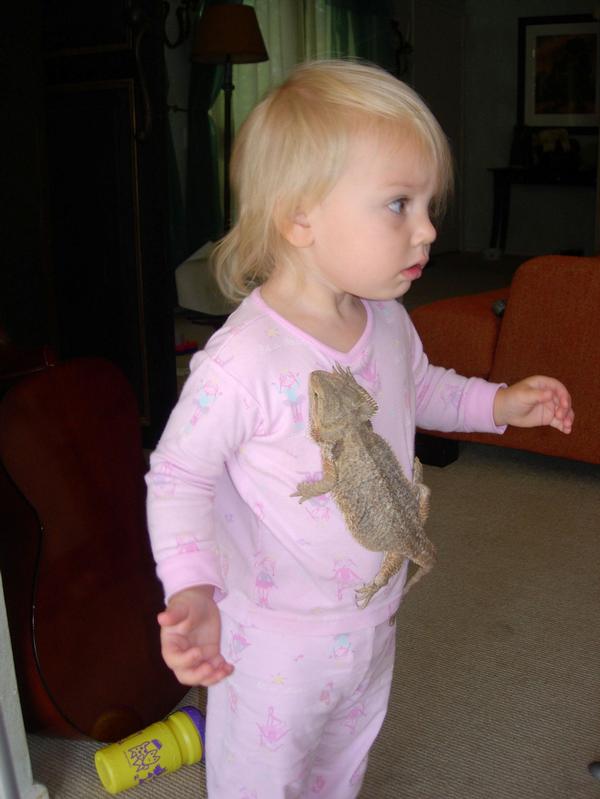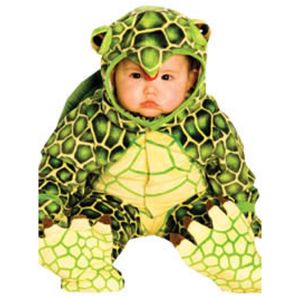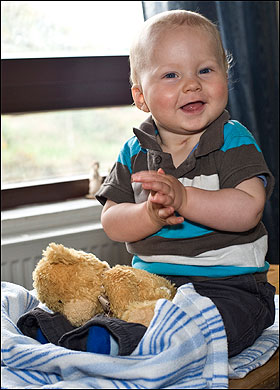When I talk about toddlers learning to crawl and heading for the dog dish, I’m not thinking of 8-week-olds.
A federal lawsuit in New Jersey alleging an infant was sickened by salmonella-contaminated dog food may be the first in the nation to hit the courts in the wake of a recent pet food recall.
The New Jersey Law Journal reports at least 15 people in nine states and Canada have reportedly fallen ill as a result of contact with pet food made by Diamond Pet Foods, which announced the recall on April 6 and has .jpg) since expanded it to additional brands.
since expanded it to additional brands.
Eisenberg v. Diamond Pet Food Processors, 12-cv- 3127, filed May 25 in federal court in Trenton, alleges that a two-month-old child became sick with diarrhea, fever and loss of appetite on April 11. A day later, his pediatrician sent him to St. Peter’s University Hospital, where he spent three days and was diagnosed with salmonella. A stool sample later tested positive for the same strain of salmonella that spurred the recall, salmonella infantis.
The child’s father, Nevin Eisenberg of Marlboro, alleges he bought a bag of a Diamond brand — Kirkland Signature Super Premium Healthy Weight Dog Food with chicken and vegetables — at the Costco Wholesale Corporation store in Morganville.
The complaint does not specify how the child, identified as C.A.E., became exposed to salmonella.
But, the U.S. Food and Drug Administration warned yesterday the multi-state outbreak of Salmonella Infantis infections continues to grow.
FDA became involved in early April when the Michigan Department of Agriculture and Rural Development reported detecting Salmonella from an intact package of Diamond Naturals Lamb and Rice Formula for Adult Dogs, collected during retail surveillance sampling. Diamond Pet Food was notified of the sampling results, and agreed to voluntarily recall this product on April 6, 2012.
At that time, there were no known dog illnesses reported.
An additional finding of Salmonella in a sample taken by the Ohio Department of Agriculture, from an opened bag of Diamond Brand Chicken Soup for the Pet Lover’s Soul Adult Light Formula dry dog food collected from the home of an ill person, and an unopened bag of the product collected from a retail store led to a recall of that product on April 26, 2012
A sample of Diamond Puppy Formula dry dog food collected by FDA during an inspection at the South Carolina production facility also yielded Salmonella Infantis, which led to a recall of that product on April 30, 2012.
Public health officials used DNA fingerprints of Salmonella bacteria obtained through diagnostic testing with pulsed-field gel electrophoresis, or PFGE, to investigate cases of human illness. CDC reports that this .jpg) outbreak strain (Infantis) is rare, and typically only 0 to 3 cases are reported per month to PulseNet.
outbreak strain (Infantis) is rare, and typically only 0 to 3 cases are reported per month to PulseNet.
Through interviews by state public health officials, FDA’s review of consumer complaints, and from a comparison of pet products from human exposure, some brands of dry pet food produced by Diamond Pets Foods at a single manufacturing facility in South Carolina have now been linked to human Salmonella infections.
FDA, CDC, and state investigations are ongoing in an effort to determine if other brands of dry dog food produced at the South Carolina facility may be linked to confirmed human illnesses. FDA will provide updates on the investigation as new information becomes available.

.jpg) infection in children who attend Rose Lodge Nursery School in Aboyne, Royal Deeside.
infection in children who attend Rose Lodge Nursery School in Aboyne, Royal Deeside. reptiles were kept. Although direct contact between child and reptile was denied, other forms of reptile contact were reported in some cases. Identical Salmonella Tennessee strains of child and reptile kept in the same household could be shown in 2 cases.
reptiles were kept. Although direct contact between child and reptile was denied, other forms of reptile contact were reported in some cases. Identical Salmonella Tennessee strains of child and reptile kept in the same household could be shown in 2 cases. other contaminants which could be harmful, says the study.
other contaminants which could be harmful, says the study. that can lead to illness. Washing hands after touching them is very important.
that can lead to illness. Washing hands after touching them is very important. There’s this website called
There’s this website called  Six months after his parents, Theresa Fitzpatrick and Alex Douglas, were faced with the decision of whether to turn off his life support as baffled medics feared the worst, Logan is doing great (right, photo from
Six months after his parents, Theresa Fitzpatrick and Alex Douglas, were faced with the decision of whether to turn off his life support as baffled medics feared the worst, Logan is doing great (right, photo from  People become infected by swallowing the parasite’s eggs that are shed in the feces of infected raccoons.
People become infected by swallowing the parasite’s eggs that are shed in the feces of infected raccoons.